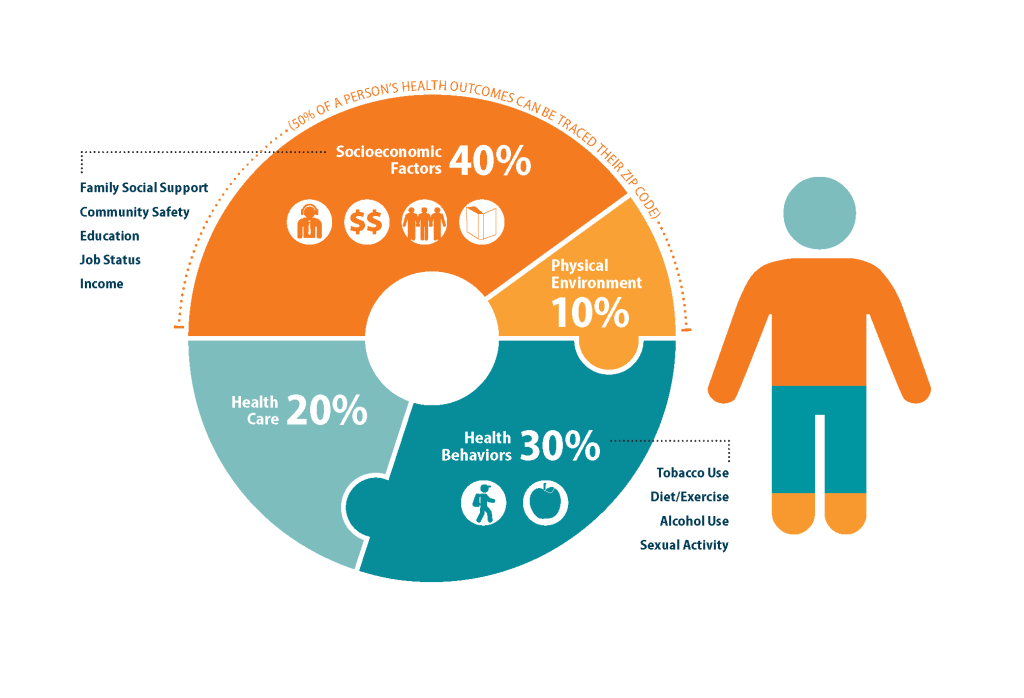SOCIAL DETERMINANTS OF HEALTH
Social Drivers of Health (SDOH) are the nonmedical factors that influence health outcomes. They are the conditions in which people are born, grow, work, live, and age, and the wider set of forces and systems shaping the conditions of daily life. These forces and systems include economic policies and systems, development agendas, social norms, social policies, racism, climate change, and political systems. In other words, health starts where we live, learn, work and play.
There is more to good health than healthcare. A number of factors affect a person’s health that people don’t often think of as healthcare concerns, like where they live and work, the quality of their neighborhoods, how rich or poor they are, their level of education, or their race, ethnicity, or gender. These social factors have a greater impact and influence on a person’s health than the medical care they receive.
Health starts in our families, in our schools and workplaces, in our playgrounds and parks, and in the air we breathe and the water we drink.

SDOH AT-A-GLANCE
Economic Stability
- Employment
- Income
- Expenses
- Debt
- Medical Bills
- Support
Neighborhood and Physical Environment
- Housing
- Transportation
- Parks
- Playgrounds
- Walkability
- Zip Code/Geography
Education
- Literacy
- Language
- Early Childhood Education
- Vocational Training
- Higher Education
Food
- Food Security
- Access to Healthy Options
Community and Social Context
- Social Integration
- Support Systems
- Community Engagement
- Stress
- Exposure to Violence/Trauma
- Policing/Justice Policy
Healthcare Access
- Health Coverage
- Provider and Pharmacy Availability
- Access to Linguistically and Culturally Appropriate and Respectful Care
- Quality of Care